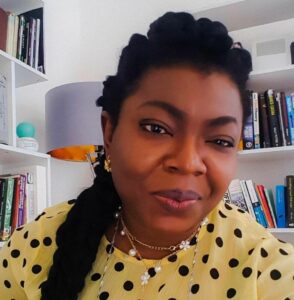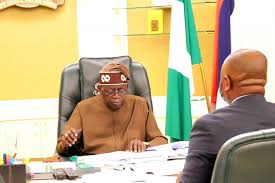WSICE, Bournemouth University, and KNUST Immortalise Onyeka Onwenu
On December 3, 2024, the Wole Soyinka International Cultural Exchange (WSICE), Bournemouth University (UK), Kwame Nkrumah University of Science and Technology (KNUST, Ghana), Lanka Cine Media (Sri Lanka), and the University of the Liberal Arts (Bangladesh) came together to honour the life and legacy of Onyeka Onwenu. The renowned Nigerian artist, activist, and intellectual passed away in August 2024 after a career that spanned over four decades. Her work and identity are now central to an academic discourse that seeks to immortalize her contributions within the study of African Womanism.

Dr. Kareem
Reflecting on her life, Dr. Teju Kareem, Director of WSICE, described Onwenu as a figure whose “songs transcended entertainment and pleasure to inspiring trust in her words.” He praised her decorum and sophistication, stating, “On stage she was comparable to any of her Western contemporaries.” The late artist’s steadfast advocacy for integrity and progress was further highlighted by her long-time collaborator, Dr. Tee Mac Omatshola Iseli, who fondly remembered her as someone whose “opinions were mostly straightforward—no cheating, no lying.” Their collaboration dated back to 1982 on the Nigerian National Television Authority (NTA), where Onwenu also showcased her remarkable vocal talents.
This initiative, led by Dr. Samantha Iwowo, Principal Lecturer at Bournemouth University, and Prof. Charles Ofosu Marfo, Provost of the College of Humanities and Social Sciences at KNUST, operates under the research network Developing a Media Decolonial Imaginary (DMDI). The project includes interdisciplinary scholars from the Global South and Global North and examines Onwenu’s legacy as a lens for advancing womanist studies. A recent DMDI event, “The Artist as Public Intellectual,” dedicated a panel titled Futures of Womanism to exploring Onwenu’s multifaceted identity.
 Dr. Iwowo explained, “Onyeka Onwenu was an activist, musician, actress, mother, mentor, spouse, sister, Igbo leader, journalist, politician, and Christian. Her identity merged Christianity and Igbo traditional values, creating a unique decolonial consciousness.” This conceptualization highlights the African woman’s ability to embody multiple roles simultaneously, an aspect often overlooked in feminist studies.
Dr. Iwowo explained, “Onyeka Onwenu was an activist, musician, actress, mother, mentor, spouse, sister, Igbo leader, journalist, politician, and Christian. Her identity merged Christianity and Igbo traditional values, creating a unique decolonial consciousness.” This conceptualization highlights the African woman’s ability to embody multiple roles simultaneously, an aspect often overlooked in feminist studies.
Prof. Akachi Ezeigbo, a celebrated womanist scholar, unpacked Onwenu’s contributions to womanist discourse in her presentation, “Social Transformation and Reorientation: Onyeka Onwenu’s Womanist Interventions in Songs.” She noted that Onwenu’s vision was to “mobilise people for positive change, transform society, and redirect African men and women to use the knowledge of the past to shape the future.”
This sentiment was echoed by Prof. Omofolabi Ajayi-Soyinka of the University of Kansas, who described Onwenu’s unique contributions to the Nigerian music industry. She stated, “Onyeka not only carved out a space, she owned it,” retaining indigenous audiences while appealing to a wider demographic.
The panel included perspectives from Dr. Morountodun Joseph of Bournemouth University, Prof. Oluyinka Esan of Caleb University (Nigeria), and Dr. Christa van Raalte of Bournemouth University. Dr. Raalte highlighted the distinct perspective Africana Womanism offers Western feminism, while Prof. Esan emphasized Onwenu’s enduring impact as a public intellectual.
Contributions from South Africa’s Keitu Gwangwa, daughter of legendary artist Jonas Gwangwa, further underscored the power of artist-activism. Through her presentation, “Kukude Lapho Sivela Khona (We’ve Come from Far),” Gwangwa reflected on how artists like Onwenu inspire social justice movements globally.
Dr. Vanessa Iwowo of the London School of Economics added a critical lens, advocating for the prioritization of Indigenous Knowledge in global research. She emphasized the importance of grounding studies in the lived experiences and environments of local communities.
The panel uniquely combined music and research, with curated listening sessions of Onwenu’s work. Although copyright restrictions limited access to in-person attendees, the combination of music and academic discourse offered a holistic tribute to the late artist.
A documentary titled The Queen (2024) by Chisom Ifeakandu, commissioned by Al Jazeera, further contextualized Onwenu’s legacy within the broader framework of African Womanism. It celebrated the leadership of African women and drew parallels between Onwenu and other influential figures like Obi Martha Dunkwu, the Queen-Mother of Anioma.
As Dr. S. Iwowo concluded on behalf of the DMDI network, “Onyeka Onwenu’s work exemplifies the power of art to transcend boundaries and foster meaningful dialogue.” Her life and contributions remain a powerful reminder of the transformative potential of art in driving societal change.
Through the collaboration of WSICE, Bournemouth University, KNUST, and their global partners, Onwenu’s legacy is cemented in academic discourse, ensuring that her voice and vision will continue to inspire future generations.
—————————————————————————————————————————————
Your help to our media platform will support the delivery of the independent journalism and broadcast the world needs. Support us by making any contribution. Your donation and support allows us to be completely focus, deeply investigative and independent. It also affords us the opportunity to produce more programmes online which is a platform universally utilised.
Thank you.
Please click link to make – DONATION










